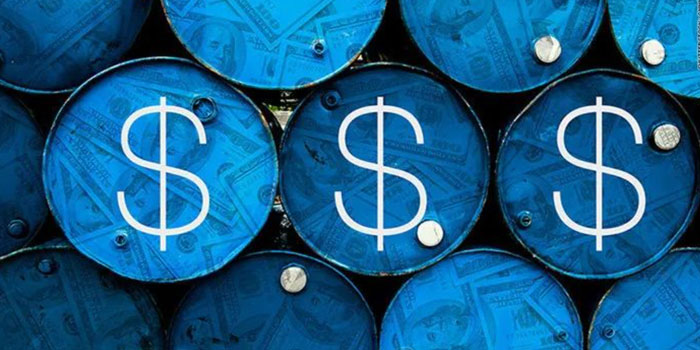Features of Defensive Stock
Dec 04, 2023 By Triston Martin
As a result of the consistent demand for their wares, defensive stocks have a greater propensity to remain relatively steady across the different stages of the economic cycle. It is important to differentiate between defensive stocks and defense stocks, which are the shares of firms that produce items like guns, ammunition, and fighter planes. Defensive stocks should not be confused with military stocks.
Understanding Defensive Stocks
During times of high volatility or when the economy is showing signs of slowing down, investors who want to safeguard their holdings may choose to increase their exposure to companies that are considered defensive. These firms have healthy cash flows and steady operations, giving them the capacity to survive even in the face of deteriorating economic circumstances. They also make dividend payments, which may cushion the price of a stock when the market as a whole is down. Due to their relative strength during economic downturns, defensive stocks have a lower risk of experiencing bankruptcy filing.
During economic downturns, the performance of defensive equities is often superior to that of the whole market. Nevertheless, while they are in the growth period, they often do worse than the market. This is because they have a low beta, which measures their exposure to market risk. Generally speaking, defensive stocks have betas that are lower than 1. Consider a stock that has a beta of 0.5 so that we can better understand what beta means. In a week, the market may fall by two percent; however, we anticipate that the stock will fall by no more than one percent. On the other hand, a price rise in the market of 2 percent over one week results in a predicted increase of only 1 percent for the defensive stock with a beta of 0.5.
Advantages of Defensive Stocks
Compared to other types of equities, defensive stocks provide the considerable advantage of comparable long-term profits while presenting a reduced risk. When taken as a whole, defensive equities have a Sharpe ratio greater than the whole stock market. This is a compelling case for the proposition that defensive equities are objectively superior investments to other types of companies. Warren Buffett is considered one of the most successful investors of all time because he mostly invests in companies that are considered defensive. To achieve success in beating the market, it is not essential to take on unnecessary risks. It may be more beneficial to reduce losses by investing in defensive equities.
Disadvantages of Defensive Stocks
On the other hand, defensive equities tend to have lower volatility, resulting in fewer profits during bull markets and a cycle of incorrectly timed market entry and exit points. Unfortunately, a large number of investors give up on defensive companies as a result of their underperformance late in a bull market. This is the time when they might use these stocks the most. After a decline in the market, investors sometimes rush to purchase defensive stocks, even if it may be too late to make a profit. These unsuccessful efforts to time the market by choosing defensive stocks may drastically reduce the rate of return that investors get from their investments.

Example of Defensive Stocks
Noncyclical stocks are another name for defensive stocks. This is because noncyclical equities do not strongly correlate with the economic cycle. The following are some examples of defensive stock types:
Utilities
Examples of defensive stocks are water, gas, and electric utilities because consumers need these services throughout the economic cycle. The general trend of reduced loan rates is another advantage that comes with a sluggish economic climate for enterprises in the utility industry.
Consumable Essentials
Companies that create or distribute consumer staples, commodities that consumers tend to acquire out of need regardless of the state of the economy, are often believed to be defensive companies. They consist of consumables such as food and drink, personal care goods, cigarettes, and some domestic items. These businesses maintain a consistent flow of reliable cash and profits regardless of whether the economy is doing well. When the economy is depressed, their stocks often do better than nondefensive or consumer cyclical businesses that offer discretionary items. Still, their stocks tend to perform worse when the economy is robust.
Healthcare Stocks
Historically, the stocks of large pharmaceutical firms and manufacturers of medical devices have been regarded as protective investments. After all, there will never be a time when there aren't sick individuals who want medical attention. However, they aren't as protective as they used to be since there is more competition from new medications and uncertainties around rules.

Apartment REITs
People will always need housing. Thus apartment real estate investment trusts (REITs) are also considered defensive investments. When searching for defensive bets, you should avoid real estate investment trusts (REITs) focused on high-end apartments. A slowdown in business is another reason to steer clear of office building REITs and industrial park REITs, both of which might experience an increase in defaults on leases.
-
 Investment Dec 26, 2023
Investment Dec 26, 2023Best Financial Portfolio Management Tools in 2021
Financial Portfolio Management Tools are widely used by investors to manage multiple accounts and keep track of portfolios in a single place. These advanced tools provide in-depth analysis, financial projections and examine investment returns and asset allocations. The top Financial Portfolio Management Tools of 2021 are Personal Capital, Stock Rover, Quicken Premier, and Morningstar Portfolio Manager. With these tools, you can get a quick snapshot of your financial portfolios on one platform.
-
 Savings Sep 16, 2024
Savings Sep 16, 2024Secure the Best Savings Rates: 5 Tips to Earn More in 2024
How to earn the highest interest rate on a savings account in 2024 with these expert tips. Maximize your savings with the best strategies to secure top interest rates
-
 Investment Jan 17, 2024
Investment Jan 17, 2024Premium vs Discount Bonds: Which Should You Buy?
When a bond first gets issued, it's an ordinary bond, never an investment bond or discount bond. That is, the cost that you are charged for the brand new bond (its initial price) remains fixed and is referred to as "the par value. A bond is deemed "premium" or "discount" when it is traded in the marketplace. New bonds are offered through "the "primary market" and existing bonds are offered through "the "secondary market."
-
 Investment Dec 22, 2023
Investment Dec 22, 2023Alternative energy mutual funds: Overview
Alternative energy mutual funds provide energy companies access without having to select stocks yourself. GAAEX, NALFX, NEXTX, and FSLEX are the top-rated alternative energy mutual funds for 2022. Which are the best alternative energy funds to invest in right now? And, is the clean energy industry even worth your money? Read on to explore.
